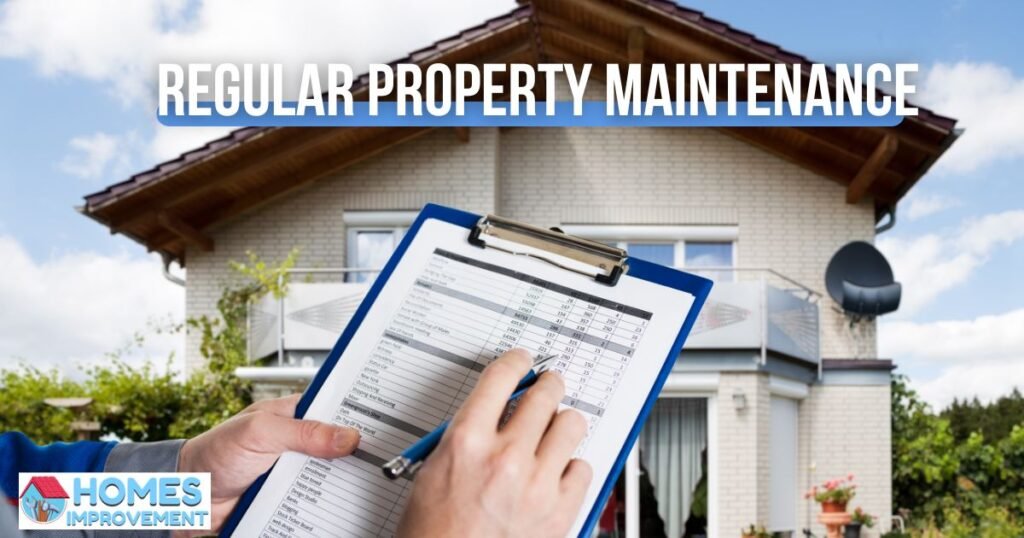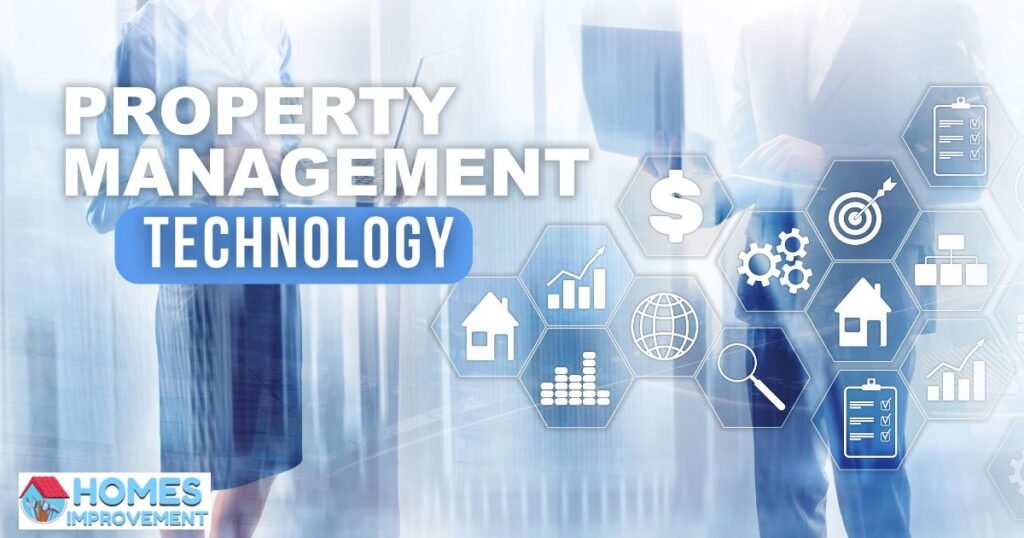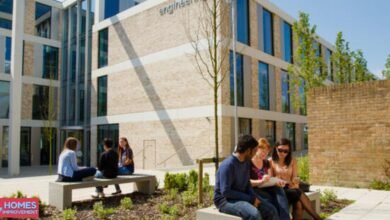Top Property Management Tips for Property Managers

Managing properties can be a stimulating task, but with the right method, property managers can confirm their properties run simply and efficiently.
This guide provides the Top Property Management Tips for Property Managers. Whether you’re treating matters, dealing with tenants, or keeping up with paperwork, these tips will help you stay prearranged and keep your properties in great shape.
Let’s dive in and make property management a breeze!
What are the Top Property Management Tips for Property Managers?
Effective Communication
Real communication is vital for successful property management. Here are some key points to keep in mind:
Establish clear lines of communication with tenants:
- Make sure renters know how to reach you. Deliver them with your contact particulars and the best times to call.
Utilize multiple communication channels (email, phone, SMS):
- Different people prefer different approaches to messages. Use email for official documents, phone calls for urgent problems, and SMS for fast updates.
Be prompt in responding to tenant inquiries and concerns:
- Aim to reply to tenants as soon as possible. Timely responses show that you care about their issues and help resolve problems quickly.
Conduct regular meetings or calls with team members:
- Regular check-ins with your team help confirm everyone is on the same page. This can be a fast call or a weekly meeting to thoughtful any ongoing matters or upcoming tasks.
Regular Property Maintenance

Develop a Routine Maintenance Schedule
Creating a routine maintenance schedule is vital to keeping your property in top condition. By regularly servicing equipment and substructures, you can prevent small issues from turning into major matters.
Make a checklist of tasks that need to be done monthly, weekly, and annually, such as checking HVAC systems, reviewing roofs, and overhauling elevators.
Conduct Periodic Property Inspections
Regular reviews are vital to classify potential matters before they become severe. Walk through the property every few months to check for signs of wear and tear, safety hazards, and any keep needs.
This active method helps you address problems rapidly and keeps the stuff appealing to tenants.
Address Repairs and Maintenance Issues Promptly
Timely repairs are vital to maintaining tenant gratification and property value. Respond fast when tenants report matters and position for repairs as soon as possible.
Keeping a list of trusted contractors and service workers can help you address problems professionally.
Keep an Emergency Maintenance Plan Ready
Emergencies can happen when you least expect them, so it’s vital to be prepared. Develop a spare-keep plan that outlines steps to take during unforeseen conditions like power outages, plumbing emergencies, or natural tragedies.
Confirm all team members are aware of the plan and know their roles during an emergency.
Thorough Tenant Screening
A thorough tenant screening method is vital to guarantee you select reliable tenants who will respect your property and abide by the terms of the lease. Here are some key steps:
Implement a Comprehensive Tenant Screening Process
Begin by creating a thorough and reliable screening process for all applicants. This will ensure that you save all essential info to make informed choices and treat all applicants justly.
Verify Tenant References and Credit History
Contact earlier landlords to learn about the tenant’s rental past and dependability. Also, check the tenant’s praise history to see if they have a path record of paying bills on time. This can give you an idea of their financial charge.
Conduct Background Checks to Ensure Tenant Reliability
Perform related checks to review any illegal records, eviction history, or other red flags that might designate possible problems. It’s vital to know who will be living on your property.
Use Standardized Application Forms and Procedures
Using standardized forms, such as application forms, credit check authorization, and rental agreements, helps streamline the process and ensures consistency. A standardized process is well-organized and legally acceptable.
By next these steps, you can choose tenants who are likely to take good care of your property and fulfill their rental contracts, resulting in positive rental knowledge for both you and the tenant.
Financial Management

Real financial management is vital for the achievement of property management.
Here are key tips to keep your money in check:
Maintain accurate and up-to-date financial records:
Always keep detailed and present records of all monetary transactions. This comprises rent payments, keep prices and any other expenditures or income related to the property.
Precise records help you track your financial health and are vital for tax drives.
Prepare and adhere to a clear budget:
Make a reasonable financial plan that frames generally anticipated pay and costs. This will assist you with making arrangements for the future and guarantee you’re not overspending.
Stick to your budget as closely as possible to maintain financial stability.
Monitor rent collections and address late payments swiftly:
Regularly screen rent payments to make sure renters are paying on time. If any payments are late, address them immediately.
Communicating promptly with tenants about late payments can help resolve matters more fast and keep a strong cash flow.
Utilize property management software for financial tracking:
Using property management software can streamline financial tracking.
These tools can help you achieve rent payments, track incidentals, and make financial reports.
This makes it calmer to keep your monetary records organized and nearby.
Understanding Legal Obligations
Remaining informed about legitimate commitments is essential for property the board. Here are a basic moves toward follow:
- Stay Updated on Laws: Check for updates on local, national, and federal property laws frequently to ensure obedience and mindfulness of any changes.
- Follow Housing Regulations: Ensure your property meets all lodging guidelines and codes. This will help prevent legitimate issues and keep your property protected and tenable.
- Document Everything: Keep an itemized record of all connections and concurrences with inhabitants, including tenant contracts, support demands, and any correspondence. Great documentation can safeguard you in the event of debates.
- Seek Legal Advice: For complex issues or vulnerabilities, talk with a legal guide. They can provide master direction and assist you with successfully exploring legal difficulties.
By following these rules, you can achieve your property sensibly and avoid legal complications.
Efficient Marketing Strategies

Use Online Platforms and Social Media for Property Listings
Post your property listings on popular online platforms and social media. This will help you reach a wider audience and attract more potential tenants.
Highlight Key Features and Amenities in Marketing Materials
When creating marketing materials, emphasize the property’s best features and amenities. This will help draw attention and show why your property stands out.
Offer Virtual Tours and High-Quality Photos
Provide virtual tours and use high-quality photos to give potential tenants a realistic view of the property. This helps them imagine living there and makes quicker decisions.
Implement Referral Programs to Attract New Tenants
Create referral programs where present tenants can refer new tenants to you. Offer inducements like rent discounts to inspire membership and bring in more renters.
Effective Lease Management
Draft clear and comprehensive lease agreements:
Make sure your lease promises are easy to appreciate and cover all vital details, such as rent amount, due dates, and property rules.
Ensure tenants are fully aware of lease terms and conditions:
Take the time to go over the let terms with your tenants. Make sure they understand their tasks and any policies regarding things like pets or keep.
Conduct move-in and move-out inspections with detailed reports:
Before renters move in, walk through the property together and note the situation of everything. Do the same when they move out. This helps prevent disputes about damages or repairs.
Review and update lease terms regularly:
Keep your lease terms up-to-date with any changes in laws or your property policies. Regular reviews help ensure that everything remains clear and relevant.
Building Positive Tenant Relationships
Creating a positive connection with your tenants is vital for a successful rental experience. Here are some humble ways to foster a sense of public and keep a good rapport:
- Foster a sense of community among tenants: Urge inhabitants to get to know one another by coordinating local area spaces and advancing shared exercises.
- Organize social events and activities: Plan occasions like grills, game evenings, or occasion parties. These get-togethers can help occupants mingle and create a well-disposed climate in the structure.
- Reward long-term tenants with loyalty incentives: Show appreciation to faithful occupants by offering motivations like lease limits, gift vouchers, or little moves up to their living space.
- Address tenant concerns respectfully and efficiently:Pay attention to and address any issues or concerns inhabitants might have with deference and brief activity. This shows that you esteem their solace and fulfillment.
By adopting these applies you can make a welcoming environment that inspires tenants to stay longer and take better care of their rented homes.
Utilizing Technology

Implement property management software for efficiency
Property management software can rationalize numerous tasks, such as tracking rent payments, managing tenant info, and making financial reports. This software is intended to make your job calmer and help you stay organized, saving you time and reducing errors.
Use digital tools for maintenance requests and work orders
Digital tools allow tenants to submit keep requests online, making it easier for you to track and manage these requests efficiently. These tools can also help you assign work orders to keep staff and monitor the progress of repairs, confirming that issues are addressed promptly.
Enable online rent payment options
Offering online rent payment options provides aptness for both you and your tenants. Tenants can pay their rent through a safe online portal, which can reduce late payments and modernize the group process. Also, online payments can be mechanically recorded in your property organization software, simplifying your financial tracking.
Leverage data analytics for informed decision-making
Data analytics can provide valued insights into numerous aspects of your property management processes, such as tenancy rates, keep costs, and tenant approval. By analyzing this data, you can make more informed choices that improve efficiency and success.
Continuing Education and Training
Attend industry seminars and workshops
Participate in meetings and workshops related to property management. These events offer valuable learning opportunities and allow you to stay updated on new methods and best performs in the field.
Stay informed about latest property management trends
Keep up with the latest trends in property management. Read manufacturing magazines, follow applicable blogs, and join online forums or social media groups to gather new ideas and visions that can progress your management plans.
Pursue certifications and additional qualifications
Consider earning certifications or further qualifications in property management. These credentials can improve your knowledge and reliability, making you more real in your role and better looking to potential clients.
Encourage team members to engage in ongoing training
Support your team by hopeful them to contribute to regular training. This can help them stay sharp and knowledgeable about current best practices, which benefits the entire operation.
What is Most Important to a Property Manager?
For a property manager, the most vital aspect is maintaining good relations with tenants. Happy tenants are more likely to stay longer, pay their rent on time, and take good care of the property.
This means being open to their needs, speaking about any matters fast, and making a safe and friendly living environment.
Clear communication and slides also play a big role in building trust and making sure everyone appreciates their tasks and expectations. Ultimately, a property manager’s goal is to confirm that both the property owner and the tenants are fulfilled.
Conclusion
Real property management needs a balanced blend of clear communication, technological integration, incessant education, and public building. By ensuring tenants understand their lease terms, maintaining the property diligently, and staying abreast of industry trends, property managers can create a musical living environment for tenants and a lucrative investment for property owners.
Building positive relationships with tenants through respect, prompt issue resolve, and public appointment fosters loyalty and gratification, reducing turnover rates. Ultimately, adopting these best practices helps property managers meet their tasks efficiently, confirming long-term success and stability in the property management arena.





Scale your content services without scaling your workload. https://bit.ly/Vocable-AI
Hello,
Thank you for sharing information about your content service. At the moment, I am not interested in exploring any new tools or platforms.
Please remove my contact from your outreach list.